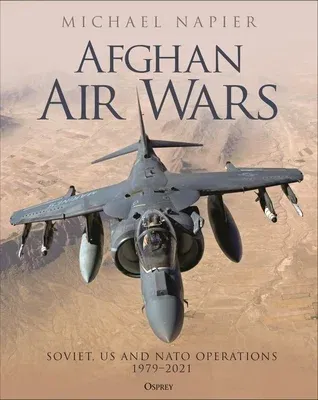Michael Napier details the critical role of air power in the skies
over Afghanistan, from the ten-year occupation by the USSR in the
1980s through to the US and NATO campaign from 2001 to 2021.
US and British forces, strongly supported by air power, invaded
Afghanistan in late 2001 in response to the Al Qaida attacks on 9/11.
What began as a small-scale operation of 2,500 troops with the limited
objective of destroying Al Qaida became ever larger, growing to over
100,000 troops ten years later. This experience matched that of the
Soviets after their invasion in late 1979, when they saw a massive
increase in resistance by Mujahidin.
Afghan Air Wars details how Soviet aircraft including the MiG-21,
MiG-23, Su-17 and Su-25, as well as Mi-8 and Mi-24 helicopters supported
Soviet offensives in the Panjshir Valley and other regions. Despite
these high-octane operations and overwhelming air superiority, Soviet
forces eventually withdrew.
Some 20 years later, US and NATO air forces were deployed in similar
roles. F-15E, F-16, F/A-18, A-10, Mirage, Harrier and Tornado aircraft
all saw action in the skies over Afghanistan as did the CH-47 Chinook
and AH-64 Apache helicopters. Mike Napier fully details their series of
operations in a hostile environment as well as the advent of
high-resolution targeting pods and Precision Guided Munitions (PGM)
which enabled aircraft to stand off from threat areas and also to deploy
their weapons with deadly accuracy. The conflict also saw the
groundbreaking introduction of Remotely Piloted Vehicles (RPV) into
routine air operations.
Afghan Air Wars is richly illustrated with over 240 images - both
official photos and privately taken, in-theatre images which have not
been previously published. It also includes first-hand accounts by
aircrews involved to create a unique and comprehensive picture of the
part played by air power over Afghanistan in the last 40 years.

